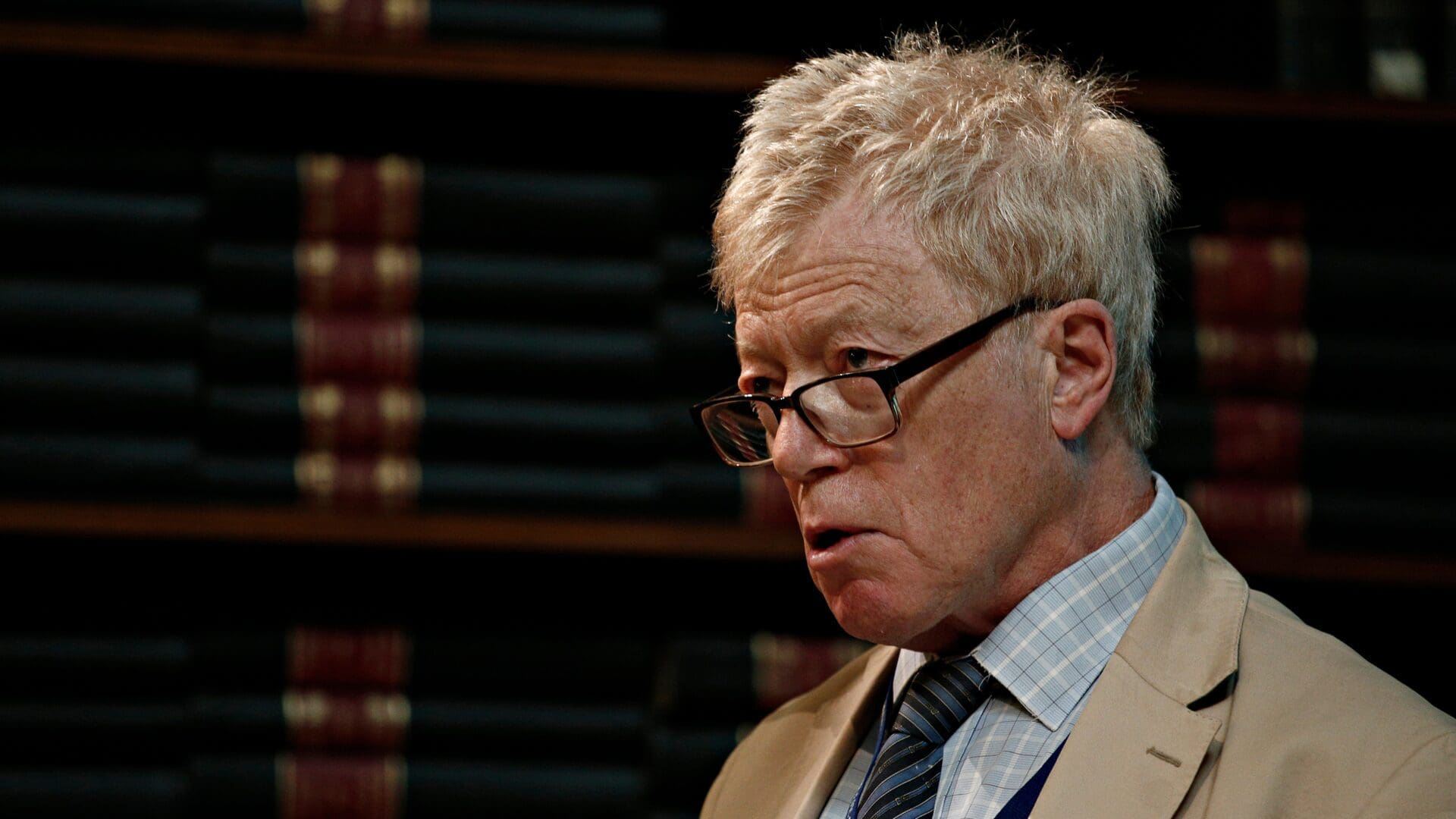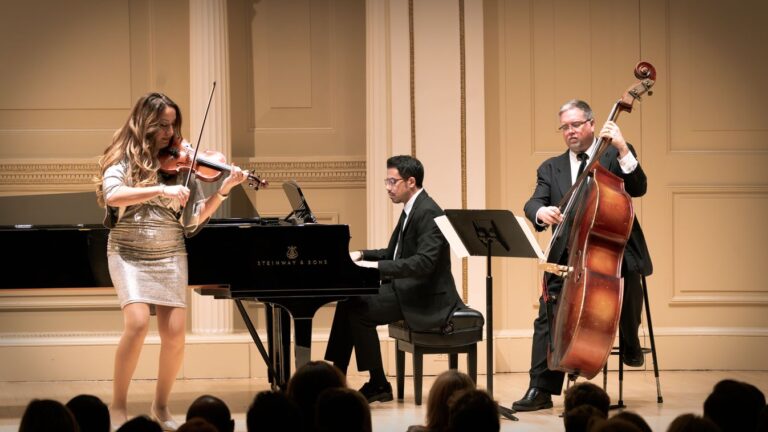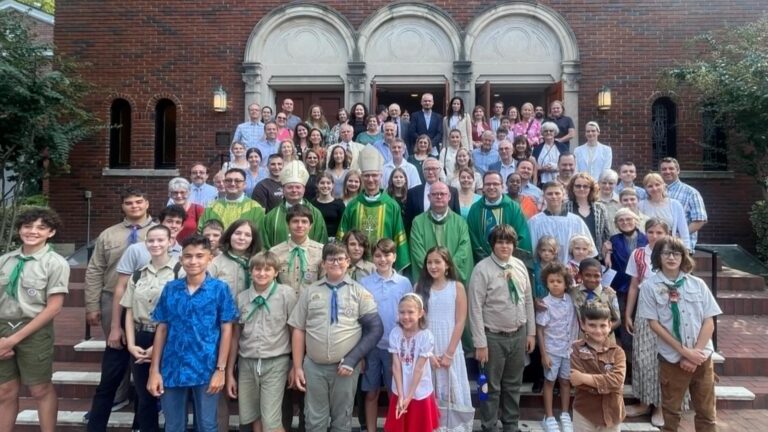The great conservative philosopher Sir Roger Scruton passed away three years ago on 12 January. At the end of December, British professor Robert Grant gave a lecture on Scruton at the National University of Public Service in Budapest. Does Scruton’s legacy live on? What did the British philosopher have to say about faith and conservatism, and about the relationship between politics and ideas? These were the questions Professor Grant was asked in an interview with Mandiner.
Can we be conservatives if we don’t believe in God? What did Scruton have to say about that?
I don’t think he took the simple-minded American view (like Kirk or Buckley) that conservatism must necessarily involve straightforward religious belief, in particular in the God of the Abrahamic religions. God (or, to the sceptic, ‘God’) is actually a person, with whom one can have a personal relationship. After all, Hume was confessedly conservative (or liberal-conservative) and a confessed atheist, too. (And not only Hume.)
I’m not sure that Roger Scruton himself believed in God in the ordinary, normal sense of the word. A good test would be whether he ever addressed himself directly, that is, prayed individually to God. I can’t see him doing that, though he might occasionally have tried, hoping it might ‘work’. He was happy enough, however, to participate in collective worship according to orthodox practice (i.e. formal worship, not evangelical, extempore or ‘enthusiastic’). And as you know he played the organ in his local, tiny village church (with a regular congregation of about 3 or 4). He was a self-taught, competent, somewhat rough and ready pianist (though a first-rate sight-reader), but he never learnt the pedals on the organ, so he just played without them.
He was very sympathetic to, and understanding of, Richard Wagner’s atheism. In fact, I would say his position was very close to Wagner’s. (Neither he nor Wagner was materialist or secularist, and in my view quite rightly.) For Wagner, as you know, religion proper was a relic, a consequence of our attributing our own latent virtues to a superior, invisible person. What Wagner and Scruton (and I too) certainly believed/believe in is ‘the sacred’, as realised in people, in dispositions, in events, and places. Of course, to say this does not tell you what actually makes something sacred, and a true religionist would say that that can only be God.
I would not know how to answer this objection. Can one believe that some things and people are sacred, without believing in God? I can only answer yes, from my own (clearly limited) experience, but I have no doubt that someone could retort that in fact I, Scruton and Wagner actually do believe in God, but are merely unwilling —out of pride, Enlightenment rationalism, entrenched scepticism, or whatever—to admit it.
As against all this, it must be acknowledged that the old Oriental religions (some of them pre-Abrahamic) such as those of India, Japan and China—and indeed those of the Greeks and Romans—have survived throughout endless changes in the external civilizational order. These religions do not demand belief in any creed or series of propositions. What they demand is practice, respect and deference (things which can be extremely exigent—or not, as may be). That means that, unlike the Abrahamic creeds, they are immune to refutation, since what they assert is not a systematic bundle of propositions. And accordingly, perhaps, immune to anything like blasphemy or heresy. As Scruton says in his book on The Ring, do we think that Aeschylus or Sophocles must literally have believed in the classical pantheon?
When the Jesuits brought the Gospel to India in the early 16th century they were understandably as perplexed by the Indians’ response—’Sure, we’ll make him a god too’—as the Indians, judged by their reply, had been by the Gospel.
Can we see houses or structures as mere ‘functional instruments?’ Scruton voiced heavy criticism toward modern architecture.
A bicycle shed is (if you like) a ‘functional’ structure, because it is inhabited only by bicycles, i.e. machines. It need not be beautiful, as long as it does not intrude on our everyday civil space or visual field, and if there is room in the vicinity for invisible ugliness. Human beings are not machines (or when they behave like machines, as pointed out in Bergson’s Laughter, we ridicule them for it—or indeed, condemn them). What exactly is the so-called ‘function’ of a non-utilitarian building, a house, say, or a cathedral? I wrote about these matters very early on in the Salisbury Review, on Charles Rennie Mackintosh, which Scruton strongly agreed with. Their ‘function’ is to satisfy our need for human meaning, not simply to provide shelter etc. (any more than human food is mere alimentation).
Scruton never received a position in the government of Thatcher, even though he supported her views. What was the reason for that?
For a start, although she knew him, and occasionally asked for his advice (as also John Gray’s and Norman Stone’s), she did not have the power simply to elevate him to government—she was only the Prime Minister, not a President. Before Mrs Thatcher’s reign, he tried to get selected as a candidate for a Tory parliamentary constituency, but failed. He was thought, by the blue-rinsed matrons on the selection committee, so he told me, to be too intellectual (and presumably, not ideological enough). As you know, he did not believe in political ‘programmes’ or simple answers. He once had a Conservative Party card, but told me he had lost it and had not renewed his subscription.
As to whether he supported her views, it depends on which views you mean. She was certainly a ’social conservative’, i.e. she believed politics should follow rather than lead conventional morality (if not, it loses legitimacy). But she also agreed with Hayek about the excellence (within limits) of the so-called ‘free’ market. Scruton, like Schumpeter, realised that a totally free market can be hugely disruptive, culturally, of the society which has adopted it. An obvious example is the market for pornography. But it seems to me, and I’m sure it did to Scruton, that the freedom of the market does not mean the freedom to offer absolutely anything for sale. To restrict the sale of certain things because of their socio-political undesirability is a political move, not an economic one. There is no reason why controls on the market are any different in principle from controls on non-economic behaviour, which most people accept (e.g. because they dislike and fear fraud, theft, murder and the rest, and have no inclination to commit those crimes themselves). There is nothing sacrosanct about economic arrangements. Indeed, and I’m sure Scruton thought so too, the economic realm is purely utilitarian or at least has its roots in that area. Its primary ‘function’ is to enable us to live the good life independently of it. It does not constitute the good life in itself, though of course there are certain employments, from quite menial ones upwards, from which we can derive personal fulfilment. And because economic activity is by definition social, it can and does conduce to social solidarity, when pursued under the right conditions and the moral law.
How is Scruton seen in the UK today? Is he widely read and published?
His purely philosophical works (e.g. Modern Philosophy, his Dictionary of Political Thought, and his little book on Kant) have always been well regarded, and are often prescribed as textbooks. They also sold well: Kant was reprinted something like 26 times, and made Scruton a lot of money, as did Modern Philosphy. He was a bogeyman for decades among readers of The Guardian and so-called ‘liberal’ academics, none of whom had actually read him. (‘Liberal’ in the UK is coming to mean what it does in the US, i.e. illiberal leftists, or the ‘woke’.) This hostility seems to me to be fading, as I think ‘wokeness’ also is—at least, I hope so.
I think he has become more important since his comparatively sudden and unexpected death, which was (amazingly) reported on our two main TV channels the same day. Cambridge University now has an unofficial Scrutonian Society (‘unofficial’ meaning private and self-supporting, therefore free to exclude applicants it doesn’t want). I addressed them a couple of weeks back, and our friend Jessica Douglas-Home did so the following week. They are extremely ‘diverse’, having a very good proportion of young women, and a visibly large contingent of black and brown people. They are also very civilised and intelligent, it seemed to me. I have been to their meetings twice so far, and intend to go again.
What is the importance of Scruton today?
Since, being dead, he is no longer an active political player or polemicist, it is possible to judge him more impartially than when he was alive, and this seems to have happened. So many of the causes he promoted used to be thought of (by the ignorant) as ‘right-wing’ and have now become almost, or entirely, mainstream. He himself had begun to take a more Hayekian, positive line on the free market, at least as far as ordinary goods and enterprises were concerned. And, of course, his range of expertise was huge: not just philosophy (in which he was, if not a prominent, at least a deservedly respected figure, particularly in the philosophy of mind), but the arts (especially music) and culture generally, and their relation to politics. He was not naturally political, but regarded it as a necessary defence of things he (and we) valued. His pseudo-Platonic dialogues and his later works of fiction (especially Notes from Underground and The Disappeared) are very fine works of literature.
Our present politics are a mess, as you know, but I think his approach will eventually, if not prevail, at least gain more followers. It has already done so. My fear is that too many people of an earnest or evangelical disposition will try to make a ‘religion’ of him and his thought. Indeed, this is already happening in the States, where he is acquiring a guru-like status among conservatives, especially youthful conservatives. But then something like this always happens when the ‘guru’ impresses enough people with whatever he has to say, especially if he says it as well as Scruton did.
Click here to read the original article








